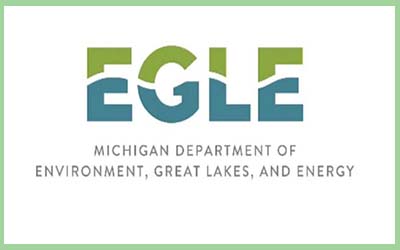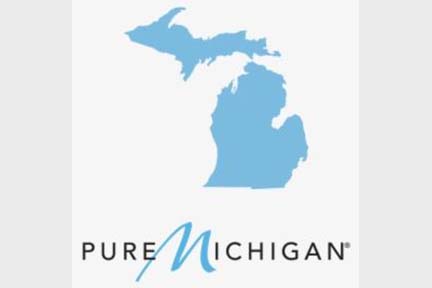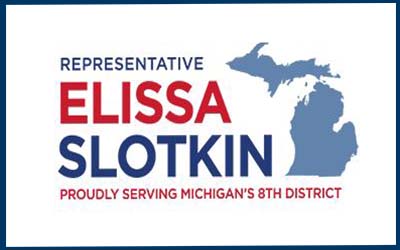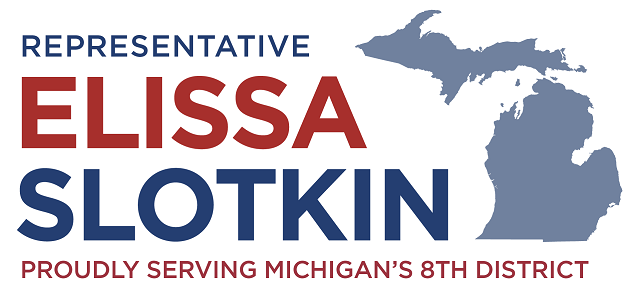 Hunters can expect excellent conditions for the 2021 firearm deer season, which begins Monday, Nov. 15. As Michigan Department of Natural Resources conservation officers gear up for the season, they share best practices and tips to avoid the most common violations and mistakes they see every year. Hunters can expect excellent conditions for the 2021 firearm deer season, which begins Monday, Nov. 15. As Michigan Department of Natural Resources conservation officers gear up for the season, they share best practices and tips to avoid the most common violations and mistakes they see every year.
“Most of the violations that conservation officers encounter during firearm deer season are simple mistakes people make when they get caught up in the excitement of the hunt or forget to put safety first,” said F/Lt. Jason Wicklund, DNR Law Enforcement Division. “We want people to be safe, so they have a good story to tell friends and family about their successful hunt.”
Here’s a list of 10 best practices to help hunters avoid common mistakes and violations during firearm season – most of which easily can be avoided with a little research and planning.
#1 – Properly tag your deer
Conservation officers often see the wrong kill tag on game – such as fish or turkey licenses on deer. Often, this is a simple mistake made in the dark and can be corrected by re-tagging the deer as soon as you notice the error.
Solution: Before field-dressing or moving the deer, kill tags should be filled out (including the month and date the deer was taken and the deer’s gender and number of antler points) and properly placed on the deer.
#2 – Know your firearm and how it functions
Semi-automatic, lever, bolt and pump-action firearms are common choices among hunters, but each firearm functions differently.
Solution: Take the time to familiarize yourself with your firearm and make sure it is properly sighted and functioning before you go hunting. Being able to safely handle your firearm is an important part of being a responsible hunter.
#3 – Know your target and what’s beyond it
Each year conservation officers investigate property damage caused by firearms. Rifle rounds travel long distances – hunters are responsible for where the bullets end up.
Solution: Know the area you’ll be hunting, including nearby buildings and properties. No one may hunt with a firearm within 450 feet of an occupied structure (including buildings, dwellings, homes, residences, cabins, barns or structures used for farm operations) unless they have permission from the landowner.
#4 – Respect landowner rights
If a deer runs onto private property, the hunter cannot retrieve it without the landowner’s permission. Conservation officers usually are contacted when trespass disagreements escalate and a resolution cannot be reached.
Solution: Always respect posted trespassing signs. If you’ll be hunting near someone else’s property, contact the landowner ahead of time; don’t wait until you’re tracking game. Most of the time, a friendly call or visit to your neighbor will remedy the situation.
#5 – Share public land
State-managed land is a popular place to hunt. Confrontations over hunting spots, or the illegal posting (trespassing or hunting signs) of state-managed public land, do occur. Conservation officers, who are often asked to help resolve disputes, say the main reason for these situations is usually last-minute hunters who randomly pick a spot.
Solution: Hunters should research and scout the land they plan to hunt well before the hunt. Brush, constructed blinds and tree stands on public land are just that – public. Regardless of who constructed, purchased or tends to these blinds, when they’re on state-managed public land, they are available on a first-come, first-served basis. Public land cannot be posted or reserved.
Tree stands used on public land must be portable and have the hunter’s name, address and Michigan driver’s license number or DNR sportcard number affixed in legible English that can easily be read from the ground. Hunting platforms cannot be affixed or attached to any tree by nails, screws or bolts.
Refer to the 2021 Hunting Digest for more information about hunting from tree stands on public property.
#6 – Leave the land better than you found it
Leaving propane bottles, hand-warmer wrappers, food wrappers, bottles and other trash causes problems for animals and people.
Solution: Practice the “leave no trace” ethic and don’t litter. Whatever is brought into the woods should be taken back out. It is the responsibility of all hunters to be good environmental stewards and clean up after themselves.
#7 – Wear hunter orange
Some hunters remove their orange clothing once they get into deer stands or blinds. In the excitement of getting a deer, hunters may forget to put their orange clothing back on.
Solution: Hunters are required by law to wear hunter orange as the outermost layer of clothing at all times. Hunter orange garments, including camouflage, must be at least 50 percent hunter orange and be visible from all directions. Clothing options include a cap, hat, vest, jacket or raincoat. The DNR recommends wearing as much hunter orange as possible to increase visibility to other hunters.
#8 – Know and follow baiting regulations
Conservation officers stay busy responding to calls about illegal baiting in Michigan’s Lower Peninsula and portions of the Upper Peninsula.
Solution: Know the law. Baiting and feeding are banned in the entire Lower Peninsula and in the core chronic wasting disease surveillance area in the Upper Peninsula (portions of Delta, Dickinson and Menominee counties) – except for hunters with disabilities who meet specific requirements.
In approved Upper Peninsula baiting areas, 2 gallons of bait can be spread in an area that measures 10 feet by 10 feet. On commercial forest land, bait must be brought in each night, unless the landowner has given permission. Use bait sparingly to help curb the spread of deer diseases like bovine tuberculosis and chronic wasting disease.
#9 – Hunt in-season, during legal hours
One of the most common complaints to the DNR’s Report All Poaching Hotline is about shots fired after dark. Often, these complaints are reported days later.
Solution: Make sure your hunt is within legal hours. A hunter legally may shoot game 30 minutes before sunrise or until 30 minutes after sunset. Anyone who witnesses or suspects hunting outside of legal hours should immediately call or text the DNR’s Report All Poaching hotline at 800-292-7800. Fast reporting makes it more likely that a conservation officer will identify the suspect.
#10 – Be respectful to other hunters
Conservation officers investigate acts of hunter harassment – which is when a person or organization intentionally sabotages another hunter’s quality opportunity to take game. Examples include spraying repellent around a hunter’s blind, creating loud noises and/or barriers that prevent or deter a hunter or game from accessing an area, or destroying other hunters’ equipment such as trail cameras and blinds.
Solution: Respect the law. Michigan law prohibits anyone obstructing or interfering with the lawful taking of animals. Hunter harassment is a misdemeanor offense.
Anyone who feels targeted by hunter harassment or who witnesses a natural resource violation should immediately call or text the Report All Poaching Hotline line at 800-292-7800. Information can be left anonymously; monetary rewards may be offered for information that leads to the arrest and conviction of violators.
Michigan conservation officers are fully commissioned law enforcement officers who provide natural resources protection, ensure recreational safety and protect residents through general law enforcement and conducting lifesaving operations in the communities they serve. Learn more at Michigan.gov/ConservationOfficers. |



 Hunters can expect excellent conditions for the 2021 firearm deer season, which begins Monday, Nov. 15. As Michigan Department of Natural Resources conservation officers gear up for the season, they share best practices and tips to avoid the most common violations and mistakes they see every year.
Hunters can expect excellent conditions for the 2021 firearm deer season, which begins Monday, Nov. 15. As Michigan Department of Natural Resources conservation officers gear up for the season, they share best practices and tips to avoid the most common violations and mistakes they see every year.







